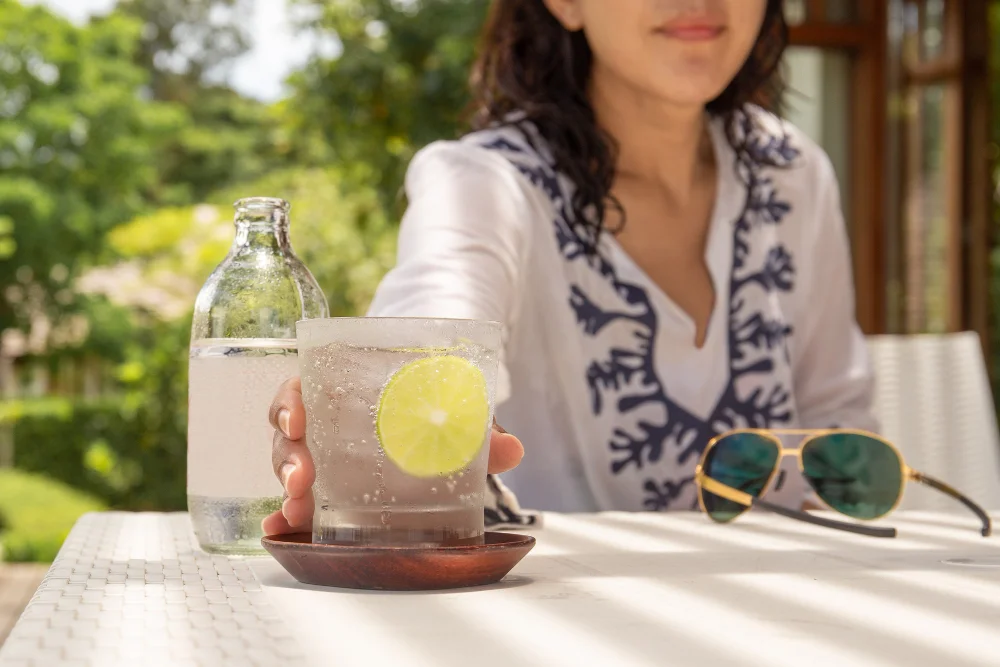Since its early days as a medicinal beverage used for medicine, tonic water has advanced significantly. It is now a well-liked mixer for cocktails and a cool drink on its own.
But the tonic water market is not standing still. There have been a number of intriguing advancements within the industry in recent years, ranging from new tastes to new techniques for producing tonic water.
Whether you enjoy tonic water or are curious about this delicious drink, continue reading to learn about the most recent trends.
Why is Tonic Water Popular?
Tonic water’s appeal primarily lies in its distinct flavor and close association with classic cocktails like the gin and tonic.
However, its adaptability as a mixer is another factor in its appeal. Numerous spirits, including vodka, rum, tequila, and even non-alcoholic substitutes, pair well with tonic water Australia. Tonic water increases the richness and depth of beverages when added. Both seasoned mixologists and amateur bartenders alike favor it.
Due to its carbonation and mildly bitter flavor, tonic water is a refreshing drink on its own. But it tastes great, especially when chilled and flavored with a little citrus. It has therefore become more well-liked among people seeking a non-alcoholic beverage option with a distinctive and enticing flavor profile.
Current Trends in the Tonic Water Market
Current trends are taking center stage in the tonic water industry. The market is always changing to satisfy the expectations of customers looking for exciting and reviving drinking experiences. Below are some current market trends for tonic water:
1. Demand for Diet and Naturally Flavored Tonic Water
In recent years, diet tonic water is gaining popularity. This tonic water typically has no added sugar, while regular tonic water can have up to 10 grams per serving. Having less or no sugar makes diet tonic water a good choice for people who are watching their sugar intake or who have diabetes. In addition to having less sugar, diet tonic water has fewer calories and carbohydrates than regular ones.
A trend in adding natural flavorings has also emerged. More and more tonic water aficionados are geared towards healthier drinks and the advantages of using natural ingredients. In response to this demand, companies have released naturally flavored diet tonic waters, like elderflower, cucumber, and lemon.
2. Resurgence of Alcoholic Drink Consumption
As the demand for alcoholic beverages like vodka and cocktails increases, the market for tonic water is anticipated to expand globally. Rising demand for small-batch gin products will likely benefit the global tonic water market.
Not to mention, in recent years, customers have firmly favored luxury spirits. They are prepared to pay extra for these goods since they frequently have a unique personality and history.
3. Rise of Premium Tonic Water
With the resurgence of alcoholic drink consumption worldwide, tonic water has also returned to the limelight. High-end bar bartenders increasingly use premium tonic water to mix with top-tier spirit brands. This has led to a growing demand for premium tonic water from consumers who want to enjoy the best cocktails.
4. Increased Attention to Medicinal Properties
In the foreseeable future, the tonic water market is poised for substantial growth on a global scale. This anticipated expansion can be attributed to several factors, including the rising recognition of the health advantages associated with quinine.
Tonic water, renowned for its quinine content, is a valuable source of this natural compound known for its medicinal properties. Notably, quinine has been acknowledged for its potential in mitigating the risk of malaria and addressing various leg-related medical conditions.
5. Rise of Artisanal Flavored Tonic Waters
Aside from flavored diet tonic waters, regular ones are revamping and shying away from their original and plain flavor. Artisanal-flavored tonic water rises through the crop with flavors like rhubarb and yuzu.
Bartenders now have another tool in their arsenal, enabling them to experiment with flavor in a subtle and remarkably reliable way. They offer a quick, effective method to quickly add some depth to a cocktail. Skilled bartenders may also use flavored tonics to purposefully mix a certain spirit with a tonic that enhances its flavor character.
6. Growing Out of Supermarkets
While supermarkets currently dominate the global tonic water market, the landscape is evolving due to various factors. The growing number of internet users and the convenience of online shopping have opened up opportunities for companies to reach consumers directly.
The shift reflects the changing consumer preferences influenced by accessibility, fast-paced lifestyles, and the abundance of options available.
Not only that but companies are strategically utilizing online channels, either through their portals or third-party retailers. These new trends resulted from expanding the company’s customer base and ensuring wider distribution of its products.
What’s Next For Tonic Water?
The tonic water market continues to evolve and captivate consumers with its latest innovations. Whether enjoyed as a mixer or a standalone delight, tonic water remains a favorite choice for those seeking taste and health benefits.


















